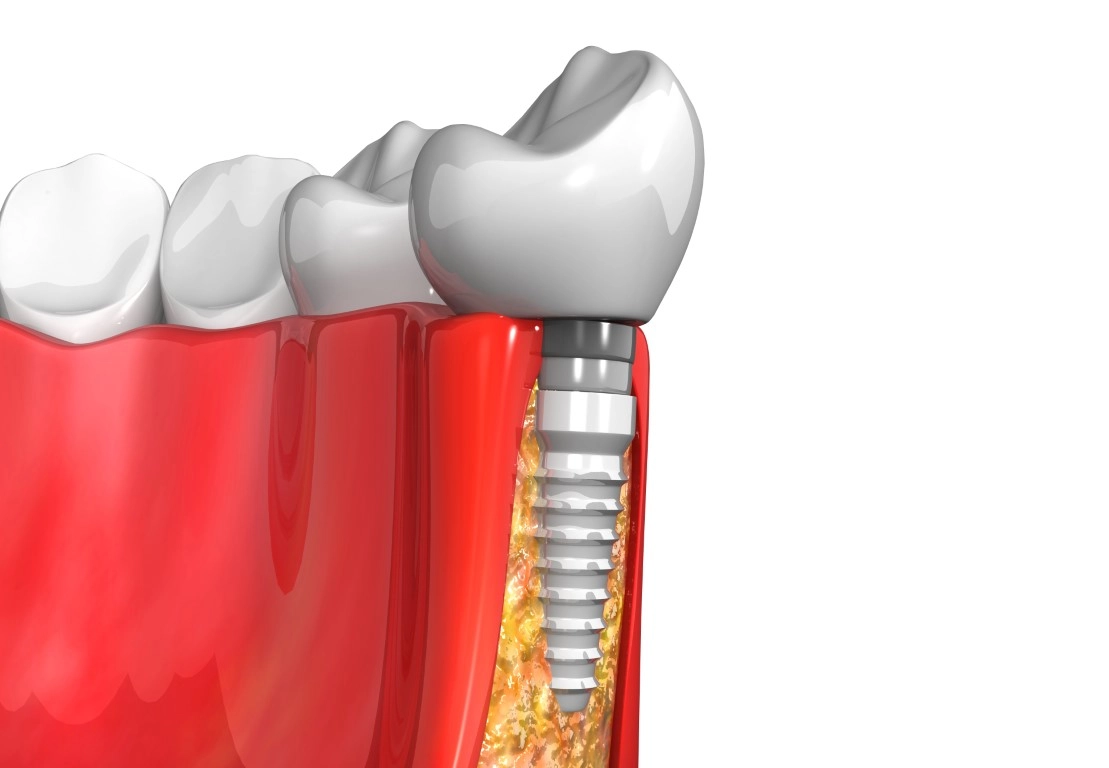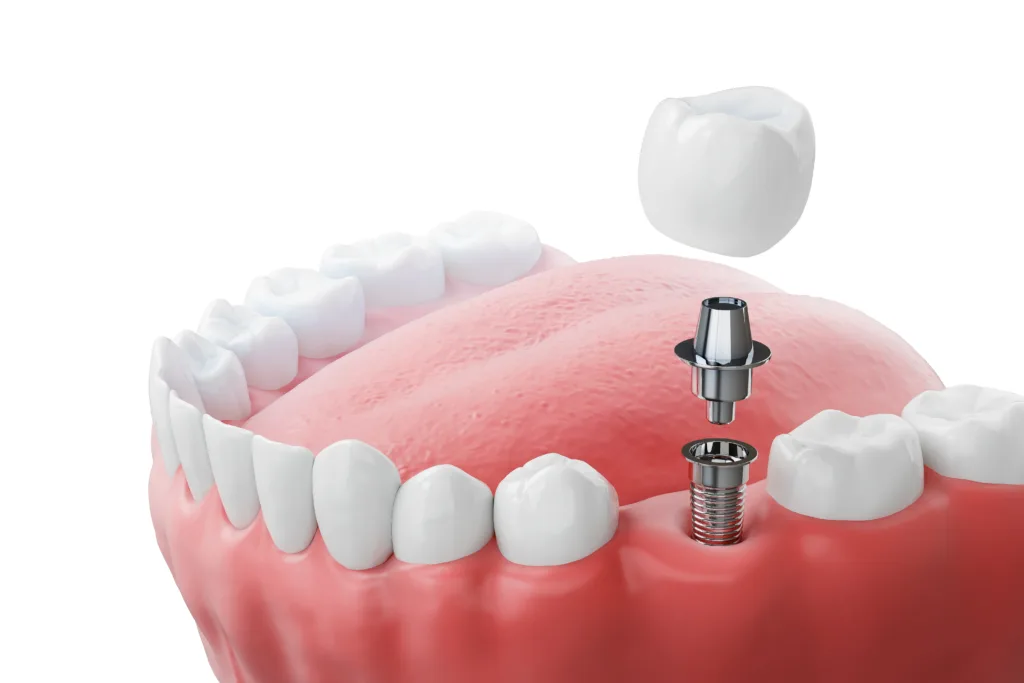
Dental implants are a popular option for replacing missing teeth. They look, feel, and function just like natural teeth, making them a seamless restoration. While implants are highly successful, implant failure is still possible.
At Smile Solutions Dentistry, we want you to have all the information you need to make the right decisions about your oral health. If you’re considering dental implants, keep reading to learn about what implant failure is, why it happens, treatment options, and tips for preventing it.
What Is Dental Implant Failure?
Dental implants consist of a titanium post that’s implanted into the jawbone and supports an artificial tooth. Over time, the post fuses with the jawbone, acting as a replacement for the tooth’s root. Implant failure occurs when a dental implant does not properly integrate with the jawbone or loses stability after healing.
This condition can be divided into two types: early failure and late failure. Early failure occurs within the first few months post-surgery, while late failure occurs after the implant has already integrated with the jawbone, sometimes even years later.
After implant surgery, you can expect to experience swelling, bruising, minor bleeding, and discomfort at the implant site. These symptoms are normal and should subside within the first couple of weeks.
If you experience any of these abnormal symptoms, either directly following the procedure or years later, it could be a sign of implant failure:
- Pain or discomfort beyond what’s expected of the normal healing process.
- A loose implant or shifting sensation.
- Gum recession or persistent swelling around the implant.
- Pus, excessive bleeding, or discharge.
- Difficulty chewing or biting beyond the first 2–3 months.
- Visible bone loss in X-rays.

Common Causes of Implant Failure
Now that you’re familiar with the specifics of implant failure, let’s explore some common causes.
Poor Osseointegration
Osseointegration is the process of the implant fusing with the bone. The bone tissue grows directly onto the titanium post, creating a secure and permanent bond. This process typically takes several months.
There are a few factors that can interfere with osseointegration, including insufficient bone density, movement during the healing process, failure to follow post-operative care instructions, and overall health. When osseointegration is inhibited, the implants are at a greater risk of failure.
Peri-Implantitis and Poor Oral Hygiene
Peri-implantitis refers to infection and inflammation of the area around the implant, breaking down the supportive bone and soft tissue. It typically occurs due to bacteria accumulation on the surface of the implant as a result of poor oral hygiene. It can also be exacerbated by smoking and diabetes, and is more common in those with a history of gum disease.
Medical Conditions
Certain medical conditions can increase the risk of dental implant failure, including diabetes, autoimmune diseases, and osteoporosis. These conditions affect the healing process and osseointegration, making it harder for the implants to integrate with the jawbone and provide a solid foundation for the artificial teeth.
Surgical or Prosthetic Issues
If implants are placed wrong, ill-fitting, or made of low-quality materials, there’s a greater risk of failure. This is why it’s so important to choose a dentist who has extensive experience in implant surgery and has proven to create excellent outcomes.
What to Do If You Suspect Implant Failure
If you notice any of the symptoms of implant failure, don’t ignore them — early treatment may save the implant. Contact your dentist immediately for an evaluation. They’ll take X-rays or CT scans to assess bone integration, check for infection, and determine the best course of action. If implant failure is caught early, deep cleaning, antibiotics, or minor surgery may help.
If the implant must be removed, the dentist may suggest bone grafting to restore the area, after which there will be a waiting period before reattempting implantation. They may also recommend alternative tooth replacement options like a bridge or dentures.

Tips for Preventing Implant Failure
At Smile Solutions Dentistry, we have successfully restored countless patients’ smiles with the power of dental implants. To avoid implant failure, we recommend:
- Choosing a qualified and experienced implant dentist.
- Maintaining excellent oral hygiene.
- Attending all follow-up appointments.
- Avoiding smoking and managing chronic conditions.
- Using a night guard if you grind your teeth.
Trust the Implant Experts at Smile Solutions Dentistry
Implant failure is rare, but it’s still important to know the risks before undergoing implant surgery. If you have any questions about dental implants, the recovery process, or whether they’re right for you, please don’t hesitate to reach out to us. We’re committed to ensuring you have a lifetime of happy, healthy, beautiful smiles.


Follow Us